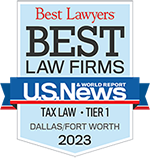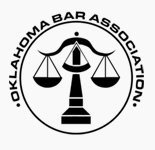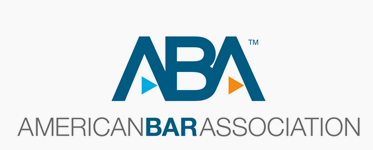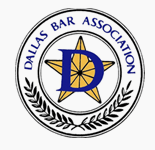If My Payroll Taxes Don’t Get Paid, Am I On The Line?
We at David Coffin PLLC understand the many complex concerns of employers. You face numerous challenges regarding taxes, particularly sole proprietors or joint owners of small enterprises. One of the primary questions you may have is whether you may face personal liability if your company’s payroll taxes are not filed on time.
Any company with employees is responsible for paying payroll taxes for its W-2 employees. Payroll taxes are due regularly, and in troubling times, many struggling businesses get behind in paying payroll taxes to the IRS. If you are an owner, officer, manager or employee of that company, can you be held liable for the company’s failure to pay its payroll taxes?
The short answer is – you might be.
Payroll Taxes In General
Generally speaking, payroll taxes paid by a company are made up of three components:
- Social security tax
- Medicare tax
- Employee’s income tax withholdings
These taxes are broken down into two groups:
- Employer’s Portion
-
- Social Security
- Medicare
- Employee’s Portion
-
- Social Security
- Medicare
- Income tax withholdings
The IRS calls the employee’s portion the “trust fund” taxes because the company is supposed to be holding these taxes in trust for the employees, which are to be paid over to the IRS.
The payroll taxes are usually required to be paid over (or deposited) fairly regularly, sometimes after each payroll. Obviously, the IRS is not too happy when a company fails to pay its payroll taxes. The problem lies in that many companies that have cash flow problems use the IRS as a creditor of first resort. Oftentimes, it is almost inviting to wait to pay the IRS. That is because it is all too easy to pay creditors who complain.
On the other hand, our system of paying and depositing payroll taxes is largely voluntary, and there is no IRS agent pressuring a company to pay its taxes if it misses one, two, three or even four or five deposits. Sometimes a company will not hear anything from the IRS for several months after failing to deposit the taxes. By that time, the unpaid payroll taxes would have accumulated to large balances and the company would have spent the taxes that were to be deposited.
So, when the IRS comes calling, can it collect from you?
Personal Liability Depends On Structure Of Business
- Sole Proprietor – Owners Liable For 100% Of Payroll Taxes
Businesses that operate as a sole proprietor, i.e., “Schedule C” businesses, are those that are not operated out of corporations, LLCs or any other entities with limited liability. These types of businesses have one owner (or two if husband and wife) and report their business income and expenses on their individual income tax returns (Form 1040). With regard to payroll taxes, the principals or owners of these types of businesses are liable for the entire amount of the payroll taxes that have gone unpaid for their business.
- General Partnerships – All Partners Are Liable For Unpaid Payroll Taxes
General partnerships consist of two or more partners but are not incorporated, or not organized as a limited liability company or a limited partnership. Under state general partnership law, all partners are liable for the debts of the partnership. These include payroll taxes. So if you are a partner of a general partnership that owes unpaid taxes, you are also personally liable for the entire amount of the partnership’s unpaid taxes.
- Corporations, Limited Partnerships And LLC’s – “Responsible Persons” Who Willfully Fail To Pay Over Payroll Taxes Are Liable For The Trust Fund Portion
Corporations, limited partnerships and LLCs are all created by state law and usually have officers or managers running the company’s operations. Management of these small businesses normally consists of one person in charge of both company operations and finances, or one person in charge of operations and another in charge of finances.
Responsible Persons
With regard to unpaid payroll taxes, federal law provides that the IRS may pursue collection against “responsible persons” of the company for the trust fund portion of the payroll taxes.
The IRS looks into several factors in determining whether an individual is a responsible person. Generally speaking, individuals in the company may be found to be “responsible persons” if they have the authority to make financial decisions of the company or to pay creditors. The IRS considers several criteria when examining an individual’s job duties to determine whether they are a responsible person. The IRS considers whether the individual’s job duties include:
- Determining financial policy for the business
- Directing or authorizing payments of bills/creditors
- Preparing, reviewing, signing or authorizing transmit and payroll tax returns
- Having knowledge withheld taxes were not paid
- Authorizing payroll
- Authorizing or make federal tax deposits
- Authorizing the assignment of any EFTPS or electronic banking PINs/passwords
From these factors, revenue officers, who are investigating these matters for the IRS, determine whether to deem an individual a “responsible person.”
Oftentimes the revenue officer will summon the company’s bank records to determine who had the authority to sign checks and who in fact signed checks during the period the payroll taxes went unpaid.
Even low level employees with check signing authority sometimes do not pass the scrutiny of the IRS and, if they have a number of the duties above, are deemed “responsible persons” who may be liable for the unpaid trust fund portion of the payroll taxes.
What Is Willfulness?
Once an individual is deemed a responsible person, the revenue officer determines whether that person willfully failed to pay over the payroll tax. Generally, the revenue officer looks for the answer to the question: During the time the delinquent taxes were increasing, or at any time thereafter, were any other financial obligations of the business paid?
If the answer to the above question is yes, then any responsible person who had knowledge of such payment is deemed willful.
It is common for the revenue officer to find that upper level management, who have the ability to make business financial decisions, are responsible persons who willfully failed to pay over the payroll taxes to the government.
Sometimes, lower level employees get caught in the determination process, as well. Suppose, for example, an accounts payable clerk has check signing authority and knows that the payroll taxes of a company have not been paid. If the clerk signs any checks for the payment of other creditors, after learning that the payroll taxes were due, it is possible that the IRS will determine that the clerk is a responsible person who willfully failed to pay over the payroll taxes to the government.
While the company remains liable for 100% of the unpaid taxes plus penalties and interest, the responsible person can be held liable for the trust fund portion of the payroll taxes.
Conclusion
Because payroll taxes often represent monies withheld from employees’ paychecks to be held in trust and paid over to the government, the IRS places a premium on the collection of these taxes. I have described above how the IRS views the collection of payroll taxes. With regard to the collection of trust fund taxes, be aware that a revenue officer’s determination is not always correct. Once the determination is made that an individual is liable for trust fund tax, the individual has the chance to challenge that determination. If your company has been visited by a revenue officer who is looking into the nonpayment of payroll taxes, rest assured that part of the revenue officer’s function is to find as many “responsible persons” as possible to ensure the government will have many sources from which to collect the trust fund taxes.
Seek Our Assistance Regarding Payroll Taxes
The lawyers of David Coffin PLLC handle the collection of payroll taxes and have a significant amount of experience helping individuals either avoid the “responsible person” designation or minimizing their exposure if the designation is appropriate. Contact us to receive experienced counsel about taxes and liability. Call us at 817-756-1792 or send us an email to schedule your initial consultation.












